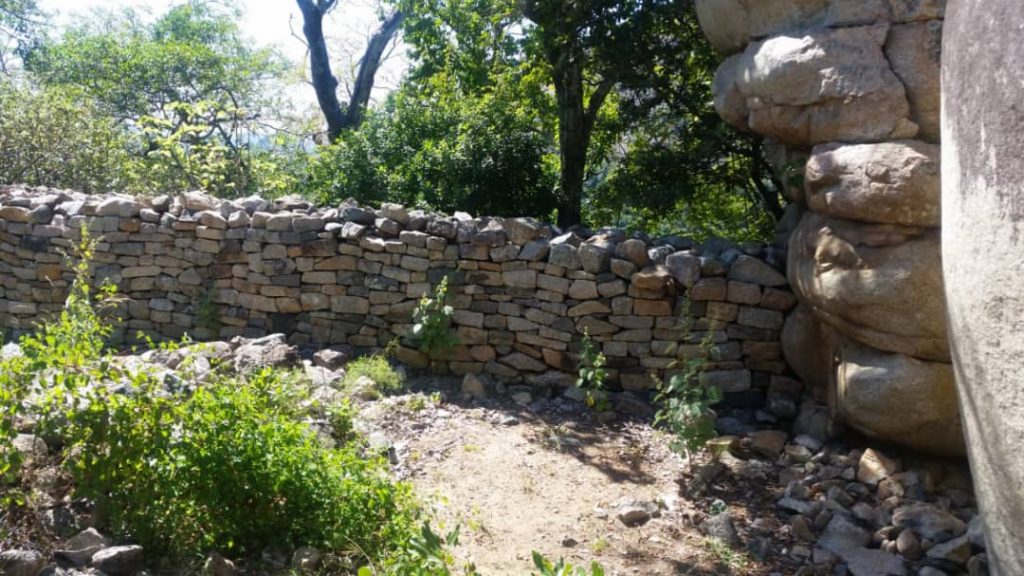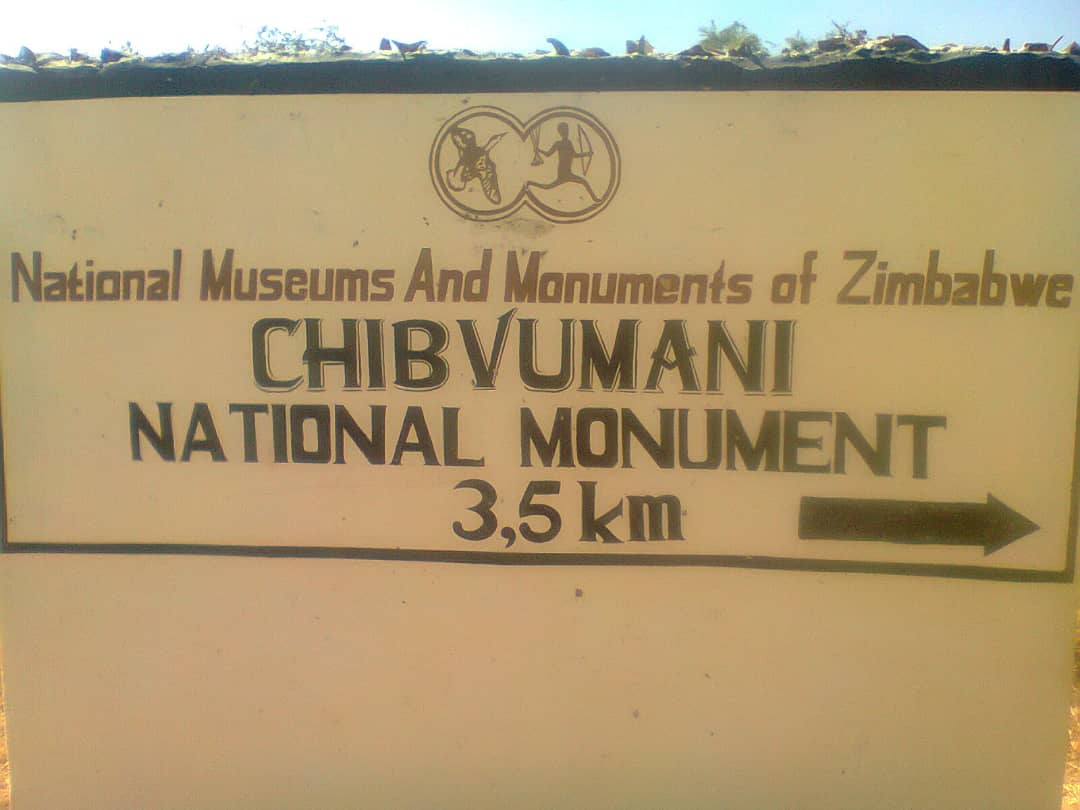By Nimrod Ushe
The Chibvumani National Monument is one of the dry-stone fortresses of the Munhumutapa Empire. It is believed that the Shona speaking people inhabited this place between 12th – 15th soon after the demise of Great Zimbabwe (Caton-Tompson 1931). According to heritage practitioners,
this site was engineered using biotite granite blocks quarried from the surrounding bedrocks outcrops. It has walls of varying heights of between 1m to 3m.

It is located in the South-Eastern parts of Zimbabwe in Bikita District of Masvingo Province at 128km peg along the Masvingo–Mutare highway in Muduma Village. Despite the tide of globalisation and cultural imports from Western countries, legends, myths, and taboos are still relevant at this place.
Village Headman Madzinga expounded that, “Chibvumani had the legendry story of a trunk or box loaded with gold.” According to the local tradition, ‘there is a trunk or a box full of gold (Eldorado) in that place but it belongs to the vadzimu/ancestors or the gods. As such, any lucky person could see or even be rewarded with it. In this regard, Village headman Box Tarera alleged that “Joram Musoro saw a trunk loaded with gold at the site. And he went to his house to call for manpower. By the time he returned that trunk was no longer there.”
When this research further inquired about it, many local residents cited that he was supposed to leave something to please the gods before he went to call for manpower.
Local people also popularised the “legend of mermaids / njuzu’ which stays in the sacred Dzivarembwa pool and in the undergone tunnel. Edward Sungisai said that ” there is a tunnel which interlinked from Chibvumani to Mbuvi mountain.” The mermaids are associated with mysterious sounds and even disappearance of people or domestic animals. Edward Sungisai opines that “sometimes the local villagers could hear people singing and beating drums probably taken long ago by the mermaids “.
Village Headman, Davison Tamirepi added that many ‘whites’ tourists used to come and pitch their tents, and one day they were shocked when their
tents were blown away by the mighty whirlwind of the mermaids.” In short, one could take note that mermaids are a mythological creature with a woman’s head and upper body, and a tail of a fish. In many cultures, mermaids are usually associated with superhuman behaviours and they could be accorded some enough respect.
Apart from the legendary stories, the local community also believed in various mythological stories. They claimed that sometimes they could see mysterious people, snakes, chickens, and white clothes. Village headman Tamirepi claimed that “the locals believed that the place is resident for people from another planet”.
Village headman Tamirepi’ s neighbour supported that one day when she had gone to Gondora wetlands to cut the grass which is near Chibvumani,
she saw two mysterious people believed to be “ancient era wearing traditional clothes – vakapfeka nhembe”.
Moreover, village headman Tamirepi alleged that “long ago there used
to be a chicken which used to roam around the site. No one was supposed to hurt it.” Similarly, Sinamai (2020) noted sacred places like Great Zimbabwe are said to have mythological stories of sacred pots that walked from mountain to mountain.
Taboos are moral sanctions that help in shaping a person’s virtue (unhu) and protect the environment in the community. Some of the taboos (zviera) at Chibvumani prohibit people from cutting down trees or look for firewood.
It is also a taboo for a visitor to climb Chibvumani Mountain alone. Maybe this was done to protect visitors since they might get lost or spend the whole day (Chadzimira) without seeing the site. In other cases, they might take difficult routes that subject them to an itching plant (Gwenyanguruve).
Apart from that, excreting on Chibvumani is strictly prohibited in order to promote the hygiene of the place. Generally, in African indigenous religion, pollution of sacred places such as pools, forests are not allowed in order to promote tourism and conservation of heritage places.
Lastly, apart from the legends, myths, and taboos attached to the site, it is also of paramount importance as a place of mystery and a tourist centre.
Chibvumani is one of the exciting places to visit. It has subterranean crevices, corridors, and freestanding walls and returning wall of the Zimbabwe Culture.
More importantly, indigenous people valued it historically as a place where the VaDuma clan great warrior WeSango Bikita who came and settled during the 16th century.
Despite Chibvumani’s potential as a revenue generator and tourist resort, it lacked enough attention from professional heritage managers and adequate information to quench the desires of most visitors. More importantly, there are the absence of tour guides, failing of visitor’ facilities such as reception rooms, toilets and interpretive panels for personal enjoyment at the site.






